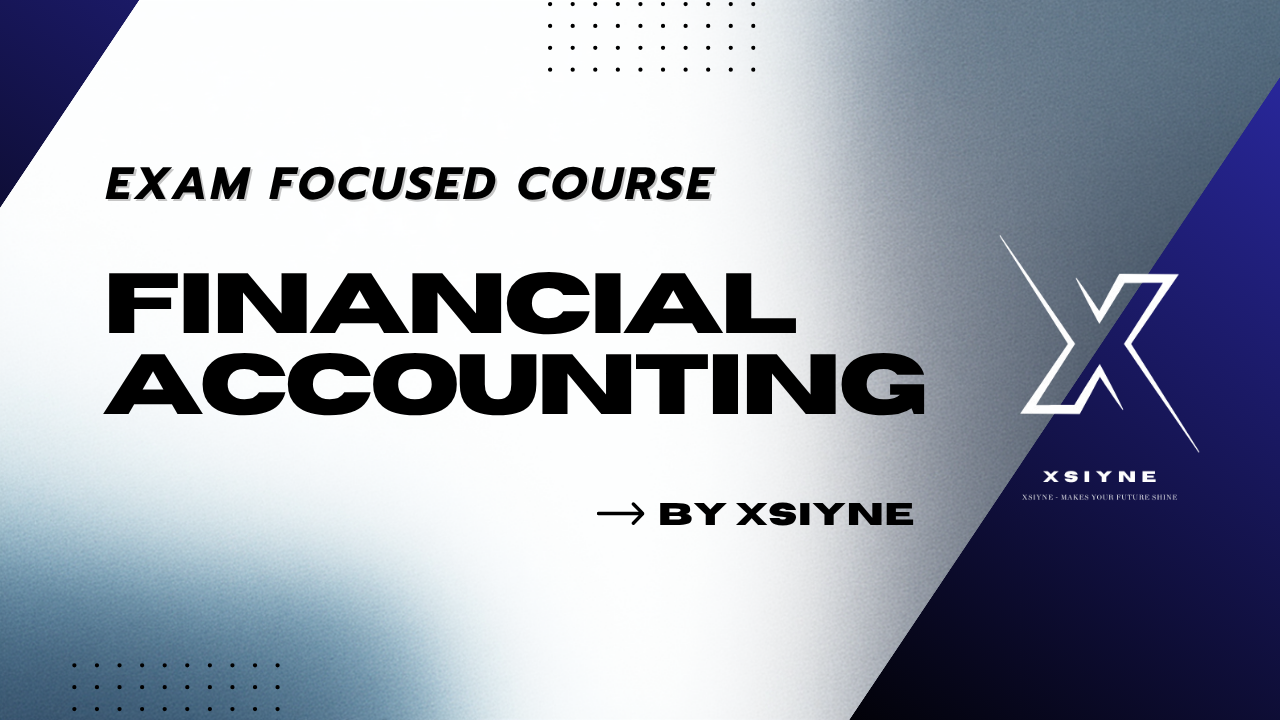Financial Accounting DU 1st Semester (DSC-1.3)

About Course
Complete Exam-Ready Course for Delhi University Students
Are you in 1st Semester at Delhi University, (Bcom Prog./Bcom Hons.) and struggling to prepare for your Financial Accounting exam?
This one complete course gives you everything you need to score 100% Full marks, even if you haven’t studied a single chapter yet.
This is not just another theory course. It’s a targeted, exam-oriented program built strictly as per DU syllabus — designed to make you exam-ready in minimum time with maximum understanding.
Course Content
Unit 1: Theoretical Framework and Accounting Process:
-
Locked